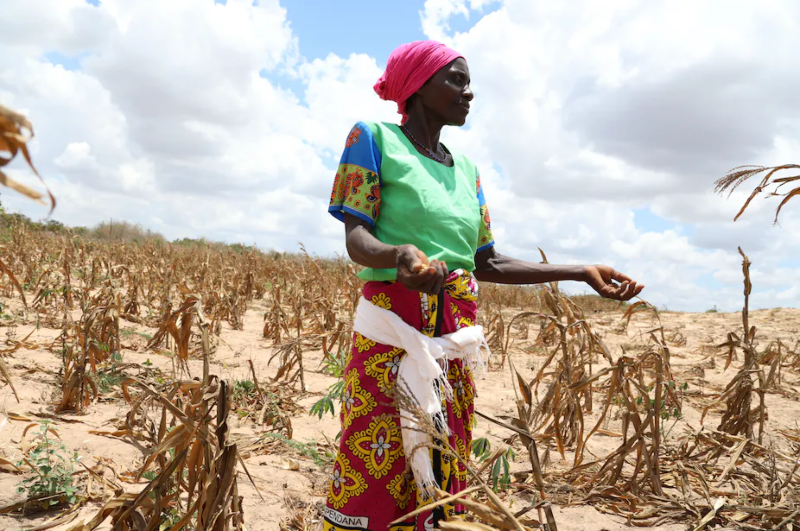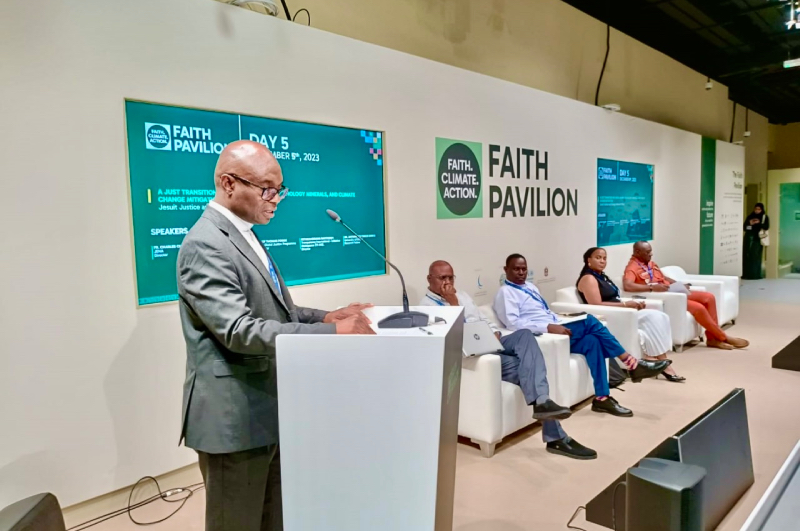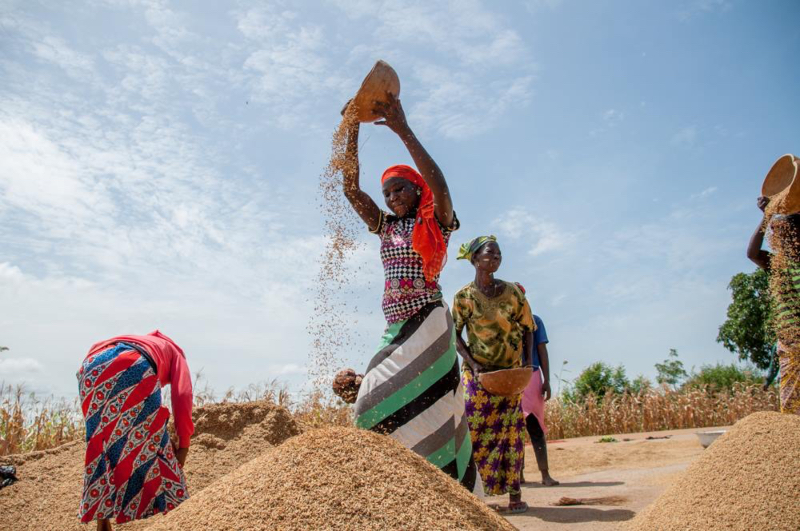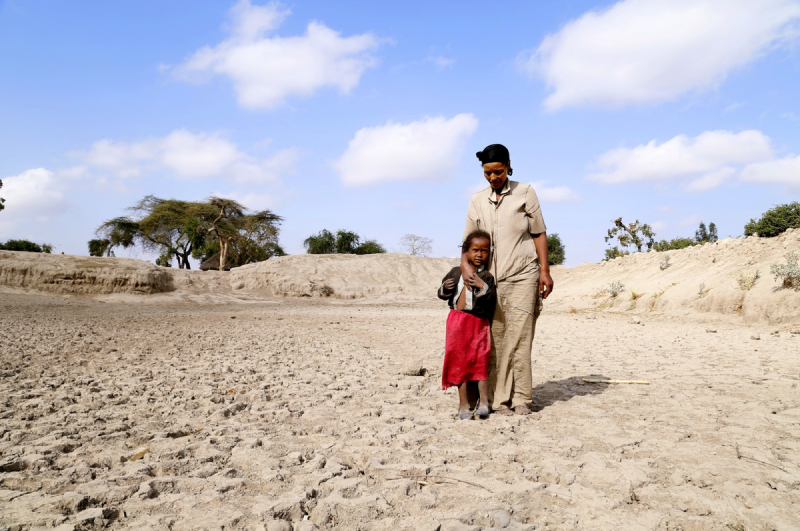

This year’s international climate change conference, 28th Conference of Parties (COP28), will be the first such conference to have a major focus on food.
The COPs is the supreme decision-making body of the United Nations Framework Convention on Climate Change (UNFCCC). Its annual sessions aim to promote institutional and administrative provisions and to take stock of progress in various areas. For the first time there will be a dedicated food day, and food, agriculture and water will be the focus of at least 22 major events during the fortnight of COP28 talks in Dubai, from 30 November to 13 December, presided over by the United Arab Emirates. There will also be a dedicated Food4Climate pavilion in ExpoCity, where the talks will be held. COP28 will serve as a nexus for leaders representing governments, businesses, NGOs, and civil society to forge tangible solutions collaboratively, and the Jesuit Justice and Ecology Network Africa (JENA) will be at the forefront of this effort.
Food systems are responsible for about a third of all greenhouse gases produced by human activity and this has spurred a compelling call to action. Furthermore, as one-third of the world's food goes to waste, an alarming over 700 million people grapple with hunger. At the same time, a staggering 3 billion individuals cannot access a nutritious diet. This issue is poised to worsen due to the adverse effects of extreme weather events and biodiversity loss on global agriculture. In Africa, the climate challenge adds to those of food sovereignty and a growing population. A ‘food systems approach’ is one of a number of buzzy phrases being deployed in the run-up to COP28. It refers to a holistic, systems-wide approach to recognise the interconnection between the many dimensions of the food system, such as food security, biodiversity, global heating, culture and health. The recent Abu Dhabi Interfaith Statement on Climate Change for COP28 calls on governments to promote sustainable agriculture and resilient food systems that respect local cultures and ecosystems while ensuring food security for all. African heads of state in the Nairobi Declaration, adopted at the first Africa Climate Summit in September 2023, emphasizing the importance of climate-resilient and restorative agricultural practices for both food security and green growth on the continent.
At COP28, the presidency agenda asks countries to sign a leaders’ declaration that countries recognize the need to transform food systems to tackle the interplay between agriculture, food and climate. The Declaration invites national governments to align their national food systems and agriculture strategies, with their Nationally Determined Contributions (NDCs), National Adaptation Plans (NAPs), and National Biodiversity Strategies and Action Plans (NBSAPs). The presidency is also emphasizing the importance of food systems and agriculture within the Global Goal on Adaptation, as mandated for adoption at COP28. This would offer an international framework on adaptation, setting objectives and indicators to monitor and quantify progress. In a recent joint open letter , World Wide Fund (WWF), The Food Systems Partnership, and the Food and Land Use Coalition (FOLU), amongst many other organizations, are urging parties to the UNFCCC to acknowledge the critical role of food systems in achieving the goals of the Paris Agreement on climate change. Within the letter are two primary asks for negotiators at COP 28.
1. Integrating a holistic approach to food systems within the Sharm el-Sheikh joint work on the implementation of climate action on agriculture and food security (SSJW). At COP28 countries will negotiate a work plan for this Joint Work, including a coordination structure within the United Nations Framework Convention on Climate Change (UNFCCC). Negotiators will also explore opportunities for financing. The Sharm el-Sheikh joint work recognizes the fundamental priority of safeguarding food security and ending hunger, and the particular vulnerabilities of food production systems to the adverse impacts of climate change. It highlights the role of farmers, including smallholders and pastoralists, as key agents of change recognizing that solutions are context-specific and consider national circumstances. This action point on the need transform systems to focus on inclusivity and equity is supported too by the Ecojesuit.
2. Building on the findings of the Global Stocktake (GST), including food systems actions in updated National Adaptation Plans (NAPs), Nationally Determined Contributions (NDCs), and long-term low-emission development strategies (LT-LEDS) before COP 30. At present, more than 100 countries have included actions on agricultural production in updated NDCs, but only five include actions on consumption – and they are all developing countries whose diets produce relatively few GHG emissions. Just two countries – Malawi and Liberia – have included all of production, consumption, and loss and waste in their updated NDCs.
Thus, this year governments will take a decision on the first global stocktake, including measures and finance that need to be put in place to bridge the gaps in progress.This is part of the Paris Agreement and a key means to assess the world's global response to the climate crisis and chart a better way forward. UNFCCC recently released a Synthesis Report designed to help governments reach a decision on the global stocktake at COP28 which is Party-driven, and can be leveraged to accelerate ambition in their next round of climate action plans due in 2025.
This COP28 will be a new opportunity to address questions that have remained unanswered after previous discussions. COP28 therefore provides an opportunity for governments and non-state actors already championing the agenda to leverage this momentum to encourage less ambitious governments to act. It anticipated that the focus on ensuring food systems and agriculture are central to climate action efforts and that the voice of the smallholder farmer will be clearly articulated on the global stage.
Related Articles
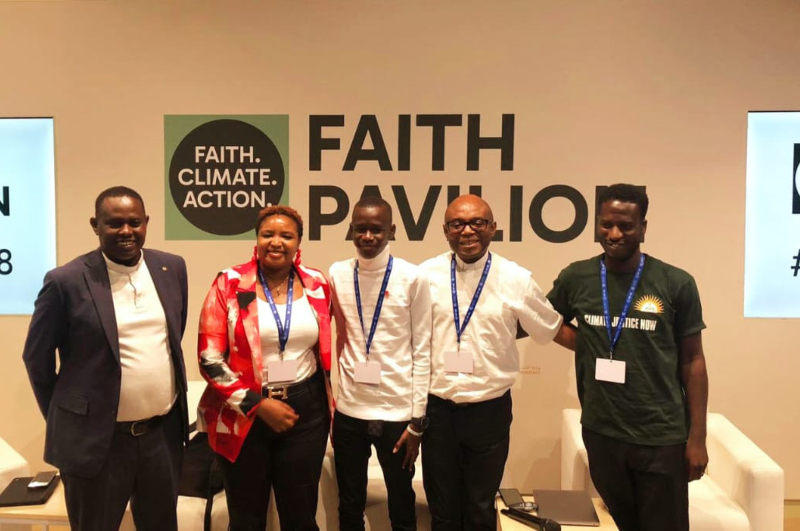
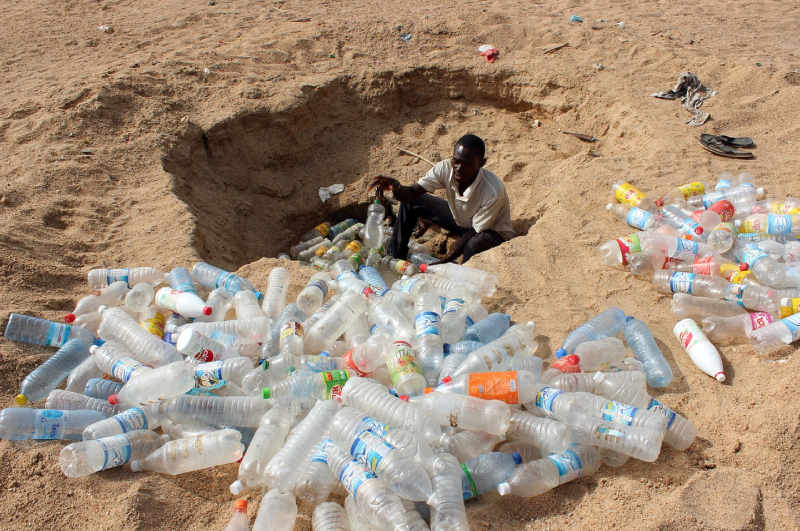
Select Payment Method
Pay by bank transfer
If you wish to make a donation by direct bank transfer please contact Fr Paul Hamill SJ treasurer@jesuits.africa. Fr Paul will get in touch with you about the best method of transfer for you and share account details with you. Donations can be one-off gifts or of any frequency; for example, you might wish to become a regular monthly donor of small amounts; that sort of reliable income can allow for very welcome forward planning in the development of the Society’s works in Africa and Madagascar.
Often it is easier to send a donation to an office within your own country and Fr Paul can advise on how that might be done. In some countries this kind of giving can also be recognised for tax relief and the necessary receipts will be issued.


